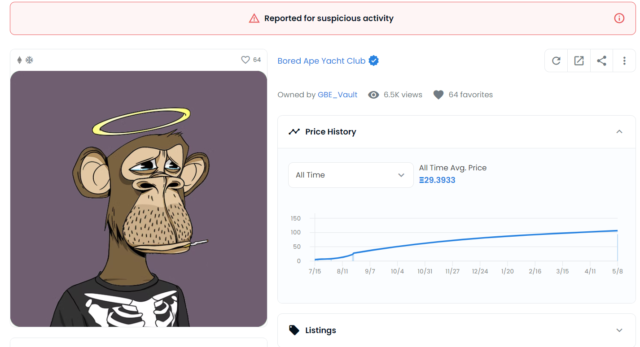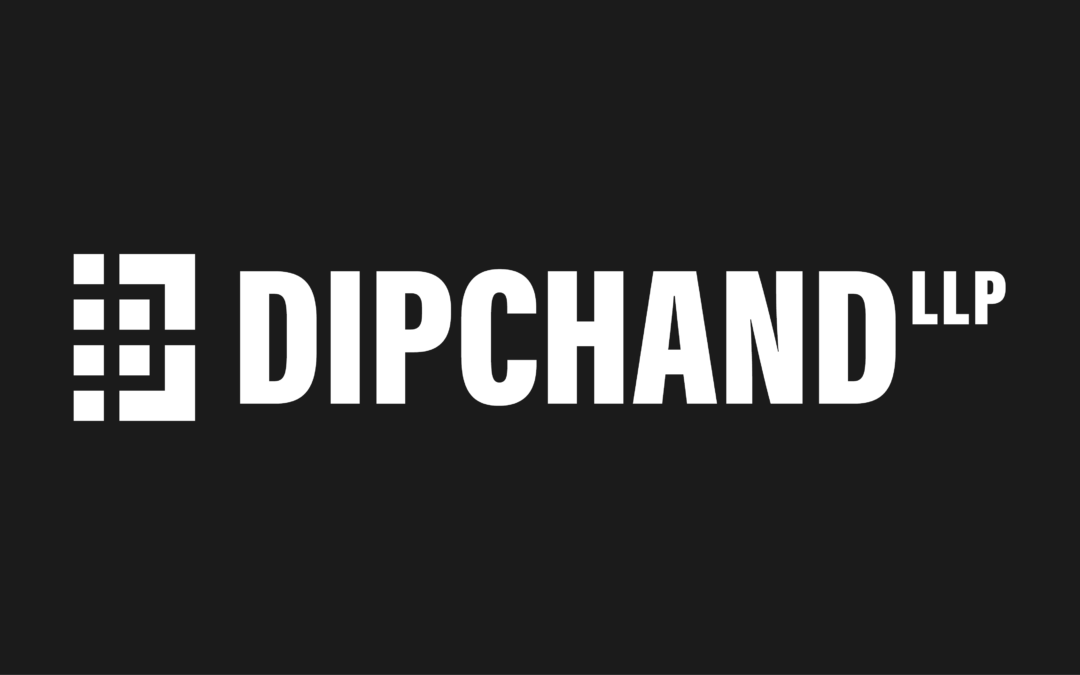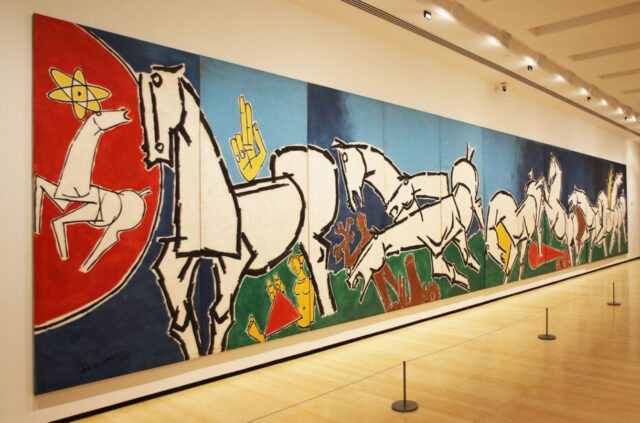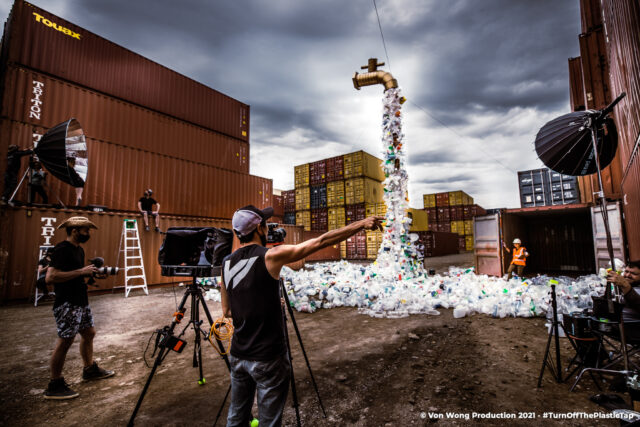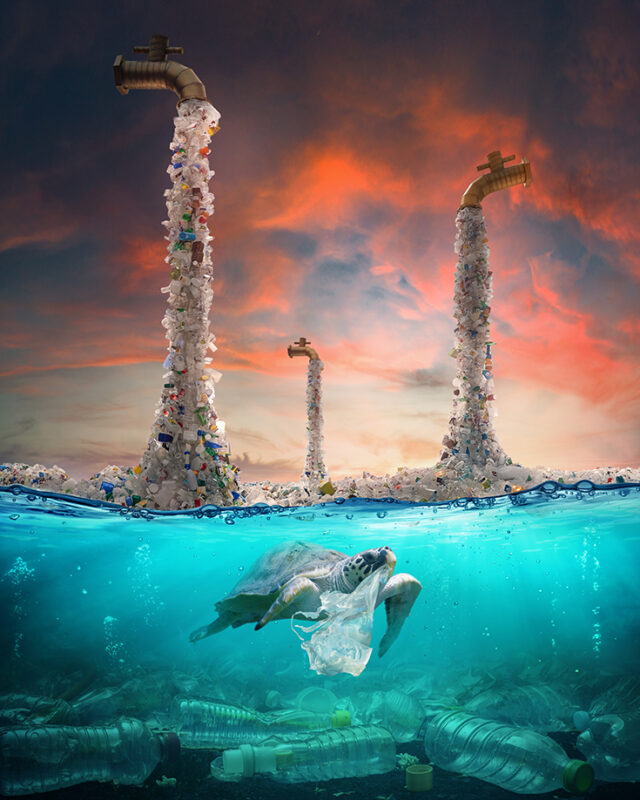By Kinsale Philip, Jake Pollack
Fans and athletes alike are enthusiastic about EA Sports’ plans to release an NCAA football video game (“Video Game”) in summer 2024—for the first time since 2013. The ongoing ethical debate over athletes’ Name, Image, and Likeness (“NIL”) rights in the Video Game, however, has grown more complex with each step of EA Sports’ athlete licensing approach.
EA Sports’ NCAA Football Video Game Controversy
In this scenario, NIL refers to a collegiate athlete’s right to get paid for commercial uses of their identity, which may encompass, among other things, product endorsements, video games, and social media marketing. This practice was strongly prohibited before 2021.[1]
There have been a lot of questions concerning NIL implications, particularly regarding how much athletes should be paid for their NIL. Football athletes are being offered $500 each without royalties if they opt into the Video Game.[2] Few media outlets have focused on NCAA football players’ perspectives despite the issue drawing an abundance of media attention.
We spoke with a Canadian FBS football athlete (“FBS Athlete”) who requested anonymity, Nolan Ulm (“Ulm”), a talented receiver and affable content creator from Kelowna, BC, who plays football at Eastern Washington University, and Ethan Yip (“Yip”), an explosive defensive back at William & Mary University who was raised in Surrey, BC, in order to gauge Division I athletes’ opinions of the Video Game.
Both Ulm and the FBS Athlete assert that being in a Video Game is essentially the materialization of a childhood dream; however, they draw attention to the primary concern that NCAA football athletes should be compensated commensurately “for allowing their name and likeness to be used” and that, in the existing licensing framework, athletes in the Video Game would not be “compensated correctly.”
EA Sports and their licensing partner appear to enjoy a unique bargaining position because they have emotional control over collegiate athletes as a result of generational nostalgia. Yip explains that the “NCAA football video game is huge… and everyone talks about how much they miss it.” Most twenty-something football fans and athletes can relate to the cover stars of the Video Game, Reggie Bush, Tim Tebow, and Robert Griffin III. They were undoubtedly shaped into the larger-than-life personas that they are today by the Video Game.
The Video Game’s release has been delayed since 2013 due to EA Sports’ struggle to facilitate a workable solution to pay and fairly licence the athletes that would be featured in the Video Game. Due to regulatory changes in 2021 permitting collegiate athletes to gain income from their NIL, EA Sports is now able to licence them.
NCAA athletes who receive compensation for their NIL are obligated to comply with the NCAA’s interim NIL policy, with conference and program rules, as well as with any applicable state NIL laws.[3] Thirty-two states had passed NIL legislation as of July 2023.[4] While this may be true, the “ ‘NCAA has been saying, until just recently, follow your state law if you have one,’ Jim Cavale, CEO and founder of INFLCR, said. ‘Now all of a sudden they’re changing their tune.’ ”[5]
Differences among state NIL laws may be resolved by federal legislation, but it is unlikely that federal law would pass because affected parties cannot agree on a single proposal. Simply put, some desire legislation that benefits the NCAA, such as the “Pass Act” proposed by U.S. Senators Joe Manchin and Tommy Tuberville, while others support athletes, such as the “College Athlete Economic Freedom Act” proposed by U.S. Senator Chris Murphy and U.S. Representative Lori Trahan.[6]
The FBS player considers that only a select group of renowned athletes end up entering into NIL deals and that the Video Game provides those lesser-known athletes an opportunity to be recognized. He states that “now the tough question is asking yourself whether you want to be in a video game [that] you have always looked forward to being in or give up potentially larger earnings.”
In Ed O’Bannon v NCAA, the United States Court of Appeals for the Ninth Circuit (the “USCA”) deliberated on an antitrust action against EA Sports, the NCAA, a licensing group, and two collegiate conferences.[7] The USCA held that the NCAA’s rules/bylaws unreasonably restrained trade and thus violated the American iteration of the Competition Act.[8] The decision resulted in the payment of financial settlements to athletes featured in previous NCAA Video Games.[9]
In his concurring decision that affirmed the USCA for the Ninth Circuit’s decision, United States Supreme Court (“USSC”) Justice Brett Kavanaugh even stated in NCAA v Alston that “the NCAA’s business model would be flatly illegal in almost any other industry in America.” with regard to the NCAA’s monopolization of American amateur sports.[10] As such, the USSC decided that the NCAA’s rules and bylaws violated antitrust law.
EA Sports’ Approach to Licensing
To cautiously address the player licensing challenge, EA Sports entered into a collegiate group licensing deal with OneTeam Partners (“OneTeam”), a business that specializes in managing athletes’ intellectual property. EA Sports and OneTeam’s group licensing deal gathers a number of individual NIL licences into one collective licence.[11] Its principle essentially hinges on a “co-branding force multiplier that maximizes the value of each licensee beyond its individual marketability.”[12]
According to On3, EA Sports plans to pay college football athletes a total of $5M USD (for approximately 11,050 athletes) through their deal with OneTeam.[13] The Video Game would include athletes from 130 Division I FBS football teams—excluding Division I FCS athletes.[14]
Given that athletes are frequently compensated based on performance and talent, many individuals object to the legitimacy of a deal that equally compensates athletes involved in the Video Game. The noticeable disadvantage of a group licence, therefore, is that each player’s NIL worth is treated identically, disregarding the meritocratic values embedded in American collegiate football.
The FBS Athlete argues that starters “or even second strings should receive a bit more [pay] than a fourth string,” because “athletes work their tails off to make it in these positions let alone starting so… they should be rewarded.” He believes that $500 is a reasonable starting rate, but it is insufficient for high-value NIL athletes.
The FBS Athlete however adds that in some ways, a deal that is not contingent on personal performance gives him a sense of security because he would not have to worry about receiving less or no money in the event of an injury. Additionally, it “could create more opportunities for athletes from poorer backgrounds… [because] many do not have the same access to endorsement deals as wealthier athletes.”
The FBS Athlete nevertheless posits that the Video Game’s earnings should be transparent and they “should take into account the amount of practice and skill needed to play, the number of games the player has played, the player’s impact on team performance, and the player’s overall contribution to the team.” This model, he says, would “incentivize athletes to work hard and improve their skills to maximize their earnings.”
Moreover, EA Sports’ offer of $500 USD per player is clearly meagre in comparison to settlements that averaged $1600 USD paid to athletes featured in past EA Sports college video games.[15]
Former Clemson centre and College Football Players Association (“CFPA”) vice president Justin Falcineli (“Falcineli”) has been vocal about athletes rejecting EA Sports’ NIL licensing offer. He calls it a “ridiculously low amount of money.”[16] Nevertheless, it is unknown how many athletes belong to the CFPA, and it is unlikely that they represent the majority opinion of FBS football athletes. The FBS Athlete, in fact, had never heard of the CFPA before our conversation.
Falcineli contends that he spoke with FBS football athletes who expressed a desire to turn down the offer and with those who wanted compensation in excess of $500 USD. Jalon Daniels, the University of Kansas’ starting quarterback, warned reporters that if athletes were given a small amount of money, there might be a boycott.
The FBS Athlete and Ulm expressed that a college athletes’ union presents pros and cons. Unions, do give athletes a voice in “decision-making” but they also state that “athletes would be subject to dues or other fees and the majority rules when decisions are made.” The CFPA does not charge membership fees for current college athletes but they do charge $50 USD for alumni.[17]
Student-athletes would almost certainly have to be defined as employees in order to legitimize the CFPA’s capacity to collectively bargain, which may be the case for FBS football and Division I basketball athletes as Johnson v NCAA continues its way through U.S. appellate courts.[18]
Mit Winter, an American sports lawyer and former Division I basketball athlete stated that a collective bargaining agreement is “immune from antitrust law,” giving a union like the CFPA authority to negotiate for athlete-specific rights.[19] By enhancing their conditions at work and instituting revenue sharing—when schools split income generated by sports with athletes—a recognized athletes union in collegiate football may drastically alter the quality of life for student-athletes.
The football space is well aware that, while receiving less pay, collegiate teams’ practices are much riskier and more physically demanding than those of professional teams.[20] Conversely, the National Football League’s (the “NFL”) 2020 Collective Bargaining Agreement mandates that athletes participate in a minimal number of contact practices and that they share in earning around forty-eight percent of revenues.[21]
Professional Football Athletes’ NIL Compensation
Falcineli suggests that his friends in the NFL are paid around $28,000 USD each for EA Sports’ use of their NIL in Madden NFL video games (“Madden”).[22]
In 2020, EA Sports renewed their contract with the NFL and their players’ association to continue to produce Madden for five years. The contract is worth $1.5B USD and provides $1B USD to the NFL Players Association (“NFLPA”).[23] EA Sports’ financial commitment to the athletes is illustrated by the NFLPA’s distribution of $500M USD out of the $1.5B USD to them.[24]
Yip critically drew our attention to the experiences of many young athletes who used to play the NCAA football game as much as they played Madden, if not more, and “since they discontinued [the Video Game], people have been wanting them to come out with it just as much as they want a new Madden out every year.”
The FBS Athlete, however, understands that the disproportionality in compensation between Madden and the NCAA Video Game exists because Madden involves professional athletes that “make football their full-time job.”
Justifications for the gap in pay between professional and collegiate athletes frequently cite that the NFLPA represents employees, unlike the CFPA, and that the NFL has about 1700[25] athletes compared to 11,050 in college football. On top of that, Madden outsells NCAA football Video Games.[26]
The Brandr Group, LLC v. Electronic Arts Inc.
Some college football teams are represented by The Brandr Group (“TBG”), a licensing company, similar to OneTeam. TBG submitted a request for a temporary restraining order to receive issuance of a preliminary injunction against EA Sports in June of this year for ignoring TBG’s group licensing agreements with schools; and, importantly, to obstruct the Video Game’s development.[27]
TBG claimed that EA Sports “was threatening [their] clients to comply or be excluded from the Video Game.”[28] TBG asserted, in other words, that it had exclusive licensing rights to the athletes who are members of the teams they represent and that EA Sports must negotiate with or obtain consent from TBG to acquire their athletes’ NIL licences.[29] Yet, some reports speculate that TBG’s lawsuit “is just as much about OneTeam” since the two companies are competitors and were once partners.[30]
EA Sports is headquartered in Redwood City, California and the Northern District of California Court’s threshold for a temporary restraining order is high.
The Court denied the application for temporary restraining order, with Judge Haywood S. Gilliam opining that TBG had not shown sufficient evidence that “the value of the students’ NILs would be diminished by their use in the Video Game.”[31] TBG could not prove that EA Sports’ deal with OneTeam caused “irreparable harm” to TBG’s clients’ NILs and to the public. Judge Gilliam concluded that TBG’s reasoning in their claim, above anything, emphasized the Video Game’s advantage to their athletes’ NILs.[32]
What is Next for EA Sports?
Ulm and the FBS Athlete were asked about alternate remuneration methods such as revenue sharing and hiring individual player agents to negotiate their NIL licensing deals.
The FBS Athlete stated that “if each athlete were on their own to negotiate with an individual agent, not everyone would be given a fair amount… [causing] higher profile athletes [to receive large sums and others with little to nothing].”
For Ulm, “revenue sharing is definitely a possibility but then I would not want to take away from my school’s growth” and he states that “player agents are the answer. If this is going to become pro sports then we need some management.”
EA Sports’ current desire is to release the Video Game sometime, in the summer of 2024, and for the first time, by paying collegiate athletes for their NIL.
[1] Piccola L., Amy. Duffy, Tricia. Schy R., Levi. “Your Guide to Federal and State Laws on Name, Image and Likeness Rules for NCAA Athletes.” Saul Ewing LLP. 14 March, 2022. https://www.saul.com/nil-legislation-tracker
[2] Nakos, Pete. “EA Sports to allow FBS athletes to op into 2024 video game.” On3, 17 May, 2023. https://www.on3.com/nil/news/ea-sports-to-allow-fbs-athletes-to-opt-into-2024-video-game-oneteam-partners/
Nakos, Pete. “Athlete Boycott Being Organized over 2024 EA Sports College Football Video Game.” On3, 7 June, 2023. https://www.on3.com/nil/news/college-football-athletes-association-organizing-boycott-of-2024-ea-sports-video-game/
[3] Piccola L., Amy. Duffy, Tricia. Schy R., Levi. “Your Guide to Federal and State Laws on Name, Image and Likeness Rules for NCAA Athletes.” Saul Ewing LLP. 14 March, 2022. https://www.saul.com/nil-legislation-tracker
[4] Piccola L., Amy. Duffy, Tricia. Schy R., Levi. “Your Guide to Federal and State Laws on Name, Image and Likeness Rules for NCAA Athletes.” Saul Ewing LLP. 14 March, 2022. https://www.saul.com/nil-legislation-tracker
[5] Prisbell, Eric. “The Big Story: NCAA NIL subcommittee developing a Plan B to federal legislation” On3. 10 July, 2023. https://preview.mailerlite.io/emails/webview/327565/93311344889038751
[6] Winter, Mit. “A flurry of federal #NIL bills have been released over the past few days. The PASS Act released by Senators…” Linkedin. 26 July, 2023.
[7] Ed O’Bannon, et al. v. NCAA, 802 F.3d 1049 (9th Cir. 2015).
[8] Wolohan, John. “A Full Review of the O’Bannon v. NCAA Judgment.” Law in Sport. 21 August, 2014. https://www.lawinsport.com/topics/item/your-full-review-of-the-o-bannon-v-ncaa-judgment
Ed O’Bannon, et al. v. NCAA, 802 F.3d 1049 (9th Cir. 2015).
[9] Ed O’Bannon, et al. v. NCAA, 802 F.3d 1049 (9th Cir. 2015).
[10] National Collegiate Athletic Assn. v. Alston et al., 594 U.S. ___ (2021), No. 20-512, decided June 21, 2021. https://www.supremecourt.gov/opinions/20pdf/20-512_gfbh.pdf
[11] Flagel A., Zachary & Marino A., Gregory. “Collegiate Group Licensing: a New Frontier in the NIL Wild West.” 29 August, 2022. https://www.foley.com/en/insights/publications/2022/08/collegiate-group-licensing-new-frontier-nil
[12] Flagel A., Zachary & Marino A., Gregory. “Collegiate Group Licensing: a New Frontier in the NIL Wild West.” 29 August, 2022. https://www.foley.com/en/insights/publications/2022/08/collegiate-group-licensing-new-frontier-nil
[13] Nakos, Pete. “Athlete Boycott Being Organized over 2024 EA Sports College Football Video Game.” On3, 7 June, 2023. https://www.on3.com/nil/news/college-football-athletes-association-organizing-boycott-of-2024-ea-sports-video-game/
[14] A tier below the FBS whose members’ institutions are smaller than those of the FBS. Division I FCS athletes are unlikely to be featured in the game because they were not featured in previous iterations and because the current proposed group licensing fee would only cover the costs of FBS athletes. However, according to a reporter who received access to EA Sports’ Video Game proposal to schools through an open records request, FCS athletes may become available in the game through downloadable/live content. Brown, Matt. “Here’s what the EA Sports College Football video game proposal looked like.” 10 March, 2021. Extra Points. https://www.extrapointsmb.com/p/heres-what-the-ea-sports-college
[15] Vannini, Chris. “EA Sports sued by the Brandr Group: What’s the future of the college football game?” The Athletic, 20 June, 2023. https://theathletic.com/4626567/2023/06/20/ea-sports-college-football-lawsuit/
[16] Nakos, Pete. “College Football Players Association organizing boycott of 2024 EA Sports Video Game.” On3, 7 June, 2023. https://www.on3.com/nil/news/college-football-athletes-association-organizing-boycott-of-2024-ea-sports-video-game/
[17] “Memberships — CFBPA college football athletes association.” (n.d.). CFBPA — College Football Players Association. https://www.cfbpa.org/member-cfbp
[18] Goldberg, Josh, Esq. & Gaines, Carter “What you need to know about Johnson v. NCAA” Greenspoon Marder, LLP, 1 May, 2023 https://www.gmlaw.com/news/what-you-need-to-know-about-johnson-v-ncaa/Johnson v. Nat’l Collegiate Athletic Ass’n, Civil Action 19-5230 (E.D. Pa. Dec. 28, 2021)
[19] Graham, Andrew. “As college football athletes inch toward employee status, what could they stand to gain from getting organized?” On3, 5 July, 2023 https://www.on3.com/news/as-college-football-athletes-inch-toward-employee-status-what-could-they-stand-to-gain-from-getting-organized/
[20] Graham, Andrew. “As college football athletes inch toward employee status, what could they stand to gain from getting organized?” On3, 5 July, 2023 https://www.on3.com/news/as-college-football-athletes-inch-toward-employee-status-what-could-they-stand-to-gain-from-getting-organized/
[21] Graham, Andrew. “As college football athletes inch toward employee status, what could they stand to gain from getting organized?” On3, 5 July, 2023 https://www.on3.com/news/as-college-football-athletes-inch-toward-employee-status-what-could-they-stand-to-gain-from-getting-organized/
[22] Florio, Mike. “College Football Players Are Urged to Reject EA’s NIL Offer for Upcoming Video Game.” NBC Sports, 9 June, 2023. https://www.nbcsports.com/nfl/profootballtalk/rumor-mill/news/college-football-athletes-are-urged-to-reject-eas-nil-offer-for-upcoming-video-game
[23] Goldberg, Rob. “NFL, EA Sports Announce $1.5B Multiyear Contract Renewal for Madden NFL Games.” Bleacher Report, 28 May, 2020. https://bleacherreport.com/articles/2893853-nfl-ea-sports-announce-15b-multiyear-contract-renewal-for-madden-nfl-games
[24] Goldberg, Rob. “NFL, EA Sports Announce $1.5B Multiyear Contract Renewal for Madden NFL Games.” Bleacher Report, 28 May, 2020. https://bleacherreport.com/articles/2893853-nfl-ea-sports-announce-15b-multiyear-contract-renewal-for-madden-nfl-games
[25] Putnik, Gary. “NFL Players by College on 2021 Rosters” NCAA.com, 12 September, 2021. https://www.ncaa.com/news/football/article/2021-09-06/nfl-athletes-college-2021-rosters#:~:text=A%20total%20of%201%2C696%20athletes%20make%20up%20the%20NFL’s%20active%20rosters.
[26] Rodriguez G., Juan. “Madden NFL 13 Vs. NCAA 13: Madden Is Breaking Sales Records.” GameNGuide, 8 September, 2012. https://www.gamenguide.com/articles/3239/20120908/madden-nfl-13-vs-ncaa-breaking-sales.htm
[27] Nakos, Pete. “Court Denies the Brandr Group’s Temporary Restraining Order Motion against EA Sports.” On3, 30 June, 2023. https://www.on3.com/nil/news/ea-sports-college-football-the-brandr-group-temporary-restraining-order-denied/
The Brandr Grp. v. Elec. Arts, 4:23-cv-02994-HSG (N.D. Cal. Jun. 29, 2023)
[28] Nakos, Pete. “Court Denies the Brandr Group’s Temporary Restraining Order Motion against EA Sports.” On3, 30 June, 2023. https://www.on3.com/nil/news/ea-sports-college-football-the-brandr-group-temporary-restraining-order-denied/
[29] The Brandr Group, LLC v. Electronic Arts Inc., No. 4:2023cv02994 – Document 23 (N.D. Cal. 2023)
[30] Nakos, Pete. “Court Denies the Brandr Group’s Temporary Restraining Order Motion against EA Sports.” On3, 30 June, 2023. https://www.on3.com/nil/news/ea-sports-college-football-the-brandr-group-temporary-restraining-order-denied/
[31] The Brandr Grp. v. Elec. Arts, 4:23-cv-02994-HSG (N.D. Cal. Jun. 29, 2023)
[32] The Brandr Grp. v. Elec. Arts, 4:23-cv-02994-HSG (N.D. Cal. Jun. 29, 2023)
